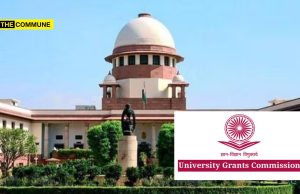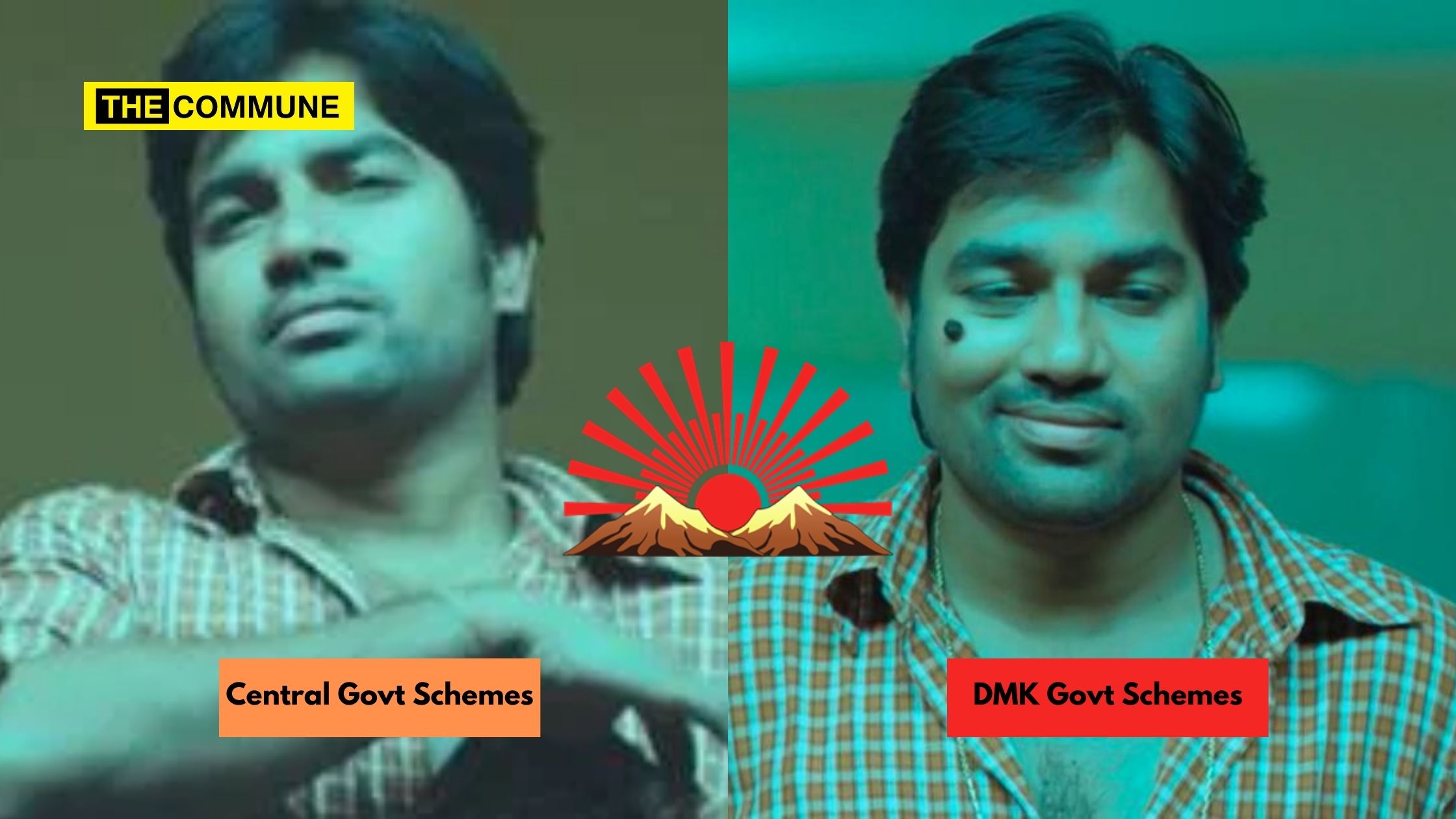
The fiscal year 2024-25 budget unveiled by the Dravida Munnetra Kazhagam-led TN government under MK Stalin, in the state assembly and was presented by Finance Minister Thangam Thennarasu under the theme “crossing obstacles and marching towards growth”. It has faced widespread criticism from political commentators, opposition party leaders, and social media users. Critics argue that the budget is merely a facade, lacking consideration for essential financial aspects, burdening citizens with increased debt, and failing to introduce meaningful welfare schemes. Additionally, they highlight the practice of renaming central government schemes and reiterating old initiatives without addressing key concerns.
Fiscal Status Of Tamil Nadu
The fiscal deficit of the Tamil Nadu government has exceeded the planned figure for the fiscal year 2024 and is hovering just below the fiscal responsibility limit of 3.5%. The state is facing challenges in managing its expenditures, with outstanding debt surpassing ₹8 lakh crore. The revenue deficit has witnessed a significant increase, reaching ₹49,279 crore for the fiscal year 2024-25, compared to the revised estimate of ₹44,907 crore in 2023-24. It is noteworthy that the revised estimate for 2023-24 has also surpassed the budgeted figure for that year, which was ₹37,540 crore.
The government is also mandated to allocate ₹17,117 crore of loss funding to TANGEDCO in the current year, creating a substantial financial burden that hampers the state’s capacity to fund developmental initiatives. Instead of proactively addressing this issue, the government has appealed to the Union Government to exclude this amount from the state’s Fiscal Deficit and Borrowing Ceiling.
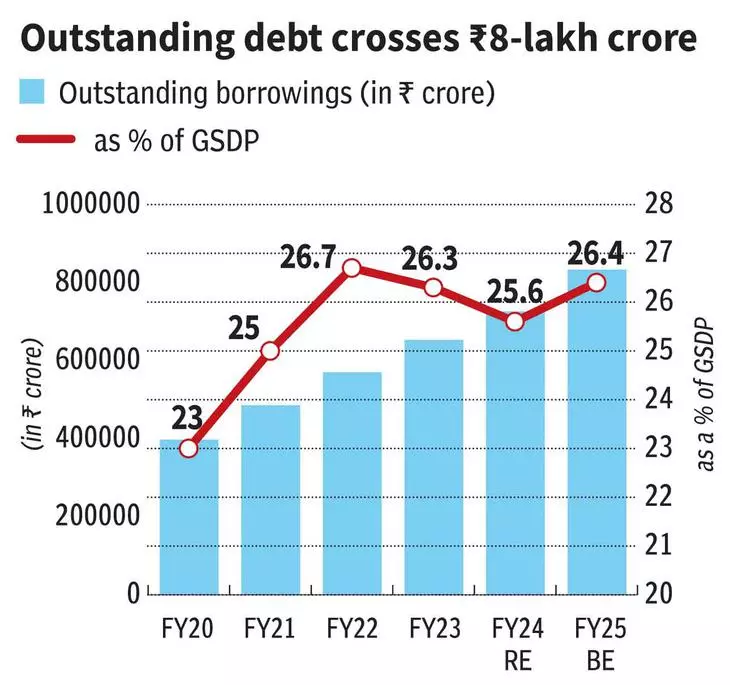
The State’s Own Tax Revenue receipts are anticipated to be ₹1,70,147 crore in the Revised Estimates, reflecting a reduction from the initially anticipated growth levels. In terms of Capital Expenditure, the Revised Estimates 2023-24 project ₹42,532 crore, slightly lower than the Budget Estimates. The Fiscal Deficit is estimated to marginally increase to ₹94,060 crore in Revised Estimates 2023-24, constituting 3.45 percent of GSDP, while the government aims for a 1 trillion economy by 2030.
In the Budget Estimates 2024-25, the total revenue expenditure is projected to be ₹3,48,289 crore, featuring increased allocations for Subsidies and Transfers to Kalaignar Magalir Urimai Thogai Thittam, including ₹14,442 crore for TANGEDCO. The Net Loans and Advances are estimated at ₹11,733 crore, raising concerns. Despite frequent references to Thirukkural and Thiruvalluvar, the alarming rise in deficit budget remains unaddressed. Valluvar’s recommendation for a balanced budget echoes: “It is not a great misfortune for a state if its revenues are limited, provided the expenditure is kept within bounds.” Valluvar also emphasized the importance of budgeting for a surplus whenever possible and avoiding budgeting for a deficit.
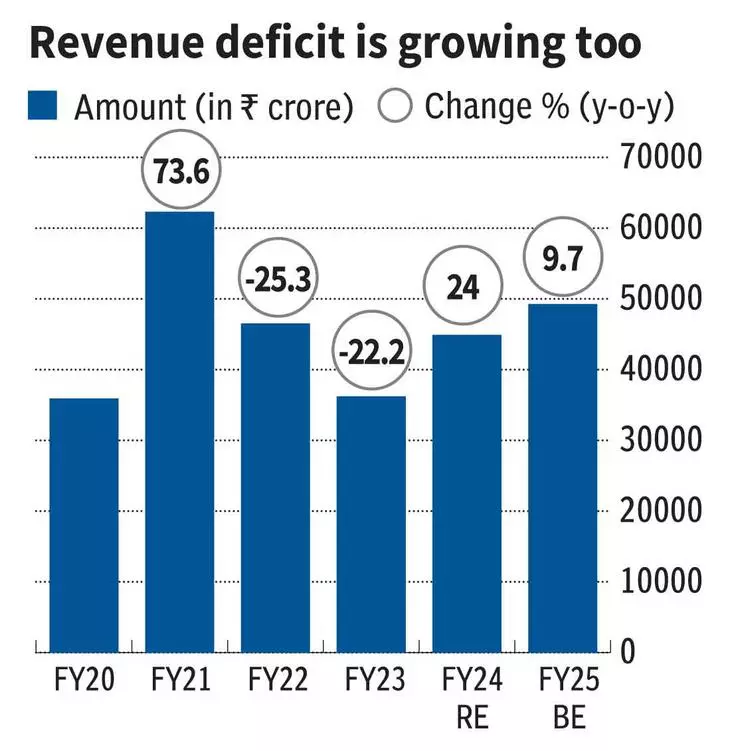
Unfortunately, the government of Tamil Nadu relies significantly on alcohol revenue as one of its primary sources of income.
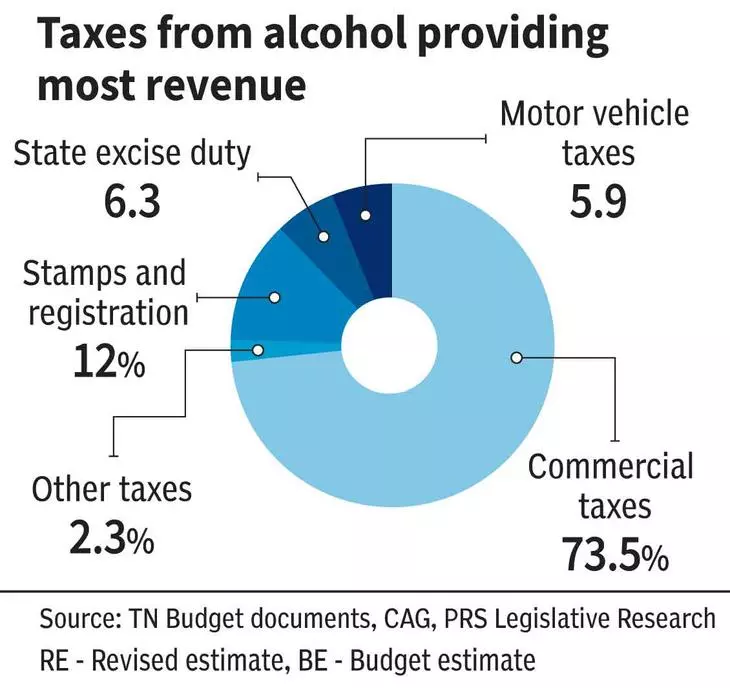
Welfare Initiatives For Women – Vote Politics Or Genuine Social Welfare?
The government announced an allocation of ₹13,720 crore for the implementation of the Kalaignar Magalir Urimai Thittam, which involves a monthly direct deposit of ₹1,000 into the bank accounts of 1.15 crore women heading households. Additionally, under the ‘Vidiyal Payana Thittam’ initiative, providing free bus travel to women, will now be expanded to cover hilly areas like Nilgiris, Kodaikanal, and Valparai.
Critics argue that although the ₹1,000 appears to be a beneficial initiative for women, the practical impact within households is questionable. There are concerns that the amount may be appropriated by the male head of the family, diverting funds towards purchasing alcohol from TASMAC, a government-owned entity. Alternatively, women in the family may not receive additional financial support. Also they suggest with a budget of ₹13,720 crore annually, it has the potential to construct 10 AIIMS hospitals and establish numerous industries that could generate employment opportunities with an average salary of ₹20,000.
Additionally under the Vidiyal Payana Thittam’, the government has allotted ₹3,050 crore as compensation to the Transport Department. However, it is noteworthy that the Transport Department is already operating at a loss of ₹450 crore, with an annual deficit of ₹5,400 crore. This has raised concerns that the additional financial burden and may further strain the already struggling Transport Department.
Adayar River Revitalization Project
The government announced that the Adyar River, originating in Guduvanchery, will be revitalized and enhanced under the auspices of the Chennai Rivers Restoration Trust. The proposed initiative, with an approximate cost of ₹1,500 crore, will be executed through a public-private partnership. Ironically, this commitment was also made in last year’s budget to rejuvenate the river as part of the ‘one-river one-operator’ project. This drew extensive criticism from netizens and the DMK government faced backlash on social media platforms.
எல்லா ஆண்டும் திமுக ஆட்சியில் இருக்கிறது மாறாத ஒன்று. ஆனால் இந்த நிலை மாறவில்லை ஆனால் அவர்கள் குடும்பம் நிலை மாறிவிட்டது எல்லா பணத்தையும் என்னதான் பண்ணுனாங்களோ திருட்டு திராவிடியாக கும்பல் மக்கள்தான் எச்சரிக்கையாக இருக்க வேண்டும் pic.twitter.com/00d2dfBIuH
— SILAMBUyadav( மோடியின் குடும்பம் ❤️ (@silambuyadav56) February 19, 2024
1/n reasons to call this #Dubakoor_Dmk_Budget! pic.twitter.com/l9JQphumqA
— karthik gopinath (@karthikgnath) February 19, 2024
உங்க அப்பா கூவத்தில் முதலை வளர்த்தார்.
நீங்கள் அடையாறில் முதலை வளர்க்கிறீர்களா முதல்வர் @mkstalin அவர்களே..?#Dubakoor_Dmk_Budget pic.twitter.com/enGlZWgZw0— karthik gopinath (@karthikgnath) February 19, 2024
Stray Dog Breeding Issue
In the 2023 budget, the DMK had allocated ₹10 crore to address the issue of stray dog breeding. Surprisingly, in the subsequent 2024 budget, they increased this allocation to ₹20 crore for the same purpose. This caught the attention of netizens who mocked the announcement by sharing and comparing two videos of the finance minister’s speeches in the state legislative assembly. Despite the allocation made last year, stray dog menace has continued to increase by the day in Tamil Nadu.
Recently, Additional Chief Secretary/Commissioner, Greater Chennai Corporation, J Radhakrishnan, had mentioned that Chennai was home to nearly 1.5 lakh stray dogs.
2023 :- தெரு நாய் இனப்பெருக்கத்தை கட்டுப்படுத்த ரூ 10 கோடி
2024 :- தெரு நாய் இனப்பெருக்கத்தை கட்டுப்படுத்த ரூ 20 கோடி
திருட்டு திராவிடியாஸ்🙄🙄
உலகத்துலேயே நாய்க்கு மொத்தமா 30கோடி ரூபாய் நிதி ஒதுக்கி, கொள்ளை அடிச்சு விஞ்ஞான ஊழல் பண்றதுல இவனுக வில்லாதி வில்லனுங்க…..… pic.twitter.com/fkXJgDvlJs
— ArunmozhiVarman 🇮🇳 🕉🚩🛕🎻🎧🎙🎶 (@Arunmozhi_Raaja) February 20, 2024
Renaming Central Govt Schemes As State Govt Schemes – Stickering Away
Netizens conducted online searches to compare yesterday’s Tamil Nadu budget with central government schemes. The DMK government faced criticism for allegedly rebranding existing central government programs without making substantial changes, merely renaming them. Some of the highlighted changes include the POSHAN scheme being renamed as the Ensure Nutrition scheme, the PM housing scheme Awas Yojana rebranded as Kalaignar’s Dream House scheme, the PM Gram Sadak Yojana (village road scheme) renamed as the CM village road scheme, SAKHI Nivas rebranded as the Thozhi scheme, Samagra Siksha as Model schools, Vishwakarma scheme as the Artisan development scheme, Jal Jeevan scheme as the Tap Water scheme, and others.
ஸ்டிக்கர் திமுக😂#Dubakoor_Dmk_Budget pic.twitter.com/4BJcKhRBFe
— Bagavath Pratheep (@Bagavathprathee) February 19, 2024
ஸ்டிக்கர் ஒட்டிய விடியா அரசு#Dubakoor_Dmk_Budget
All central govt. Schemes have been stickered as State govt schemes in TN. pic.twitter.com/ezLcS6B6TD— Bharati பாரதி 𑀧𑀸𑀭𑀢𑀺-பாரத தமிழச்சி (@Brahmanandhi) February 19, 2024
New Modern Film City Poonamallee – Gets More Budget Allocation Than Schools (Puthumai Penn Thittam)
Criticism arose as the government allocated only ₹370 crore for the implementation of the Moovalur Ramamirtham Ammaiyar Puthumai Penn Thittam, specifically for girl students in Government-aided schools studying in Tamil medium. In contrast, a more substantial amount of ₹500 crore was earmarked for the development of a new modern film city in Poonamallee. The project, spanning 140 acres of land, is expected to encompass extensive facilities, including a five-star hotel. Critics argue that this bias is influenced by the fact that the Chief Minister’s son, Udhayanidhi Stalin, is an actor seeking influence in the industry.
#Dubakoor_Dmk_Budget pic.twitter.com/u6qxQbj3Lh
— Ramesh Shivaa (@ShivaaBJYM) February 19, 2024
Netizens eventually proposed that this budget is merely a superficial attempt, which just entailed the renaming and reconstruction of the previous budget, akin to a comedy scene from a Tamil film.
1969 முதல் இப்போ வரை, இவ்வளவுதான் இவனுங்க பட்ஜெட் 😆😆😆#Dubakoor_Dmk_Budget pic.twitter.com/yRPXSWLa2I
— ArunmozhiVarman 🇮🇳 🕉🚩🛕🎻🎧🎙🎶 (@Arunmozhi_Raaja) February 20, 2024
Poverty Alleviation & Thayumanavar Scheme
The government has outlined its ambitious plan to address poverty comprehensively over the next two years through a flagship initiative called the ‘Chief Minister’s Thayumanavar scheme.’ This initiative aims to uplift approximately five lakh of the poorest families by providing integrated government assistance. However, it is noteworthy that the NITI Aayog’s multidimensional poverty report indicates that 1.43% of the population, roughly 10 lakh people, are currently below the poverty line. Despite this revelation, the government has not provided details on the specific strategies or funding allocations for this poverty alleviation effort.
In conclusion, the Tamil Nadu budget for 2024-25 has been met with significant criticism, encompassing financial mismanagement, questionable allocation of funds, and skepticism about the efficacy of welfare programs. The government’s reliance on renaming existing schemes without addressing underlying issues has further fueled discontent among the public and political commentators.
Subscribe to our channels on Telegram, WhatsApp, and Instagram and get the best stories of the day delivered to you personally.




